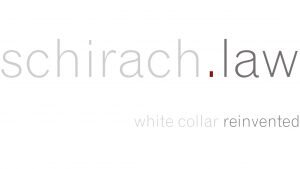Best Renewable & Alternative Energy Lawyers in Munich
Share your needs with us, get contacted by law firms.
Free. Takes 2 min.
List of the best lawyers in Munich, Germany
About Renewable & Alternative Energy Law in Munich, Germany
Renewable and alternative energy is a rapidly expanding sector in Munich, Germany, driven by both local and national goals to reduce carbon emissions, enhance energy efficiency, and transition to sustainable power sources. The city of Munich is renowned for its ambitious climate protection plans, aiming to be powered entirely by renewable energy in the coming years. Laws and regulations governing renewable and alternative energy are designed to support this transformation while balancing the interests of residents, businesses, developers, and the environment. These laws regulate solar, wind, biomass, hydroelectric, and other innovative energy technologies, covering aspects such as permitting, financing, grid access, and subsidies.
Why You May Need a Lawyer
Legal issues can often arise in the renewable and alternative energy space due to the complexity of regulations, the interaction with land and property law, and the need to secure various permits. Common situations where individuals or businesses may require legal help include:
- Seeking permits or approvals for renewable energy installations like solar panels or wind turbines.
- Negotiating contracts with energy providers, property owners, or technology suppliers.
- Understanding eligibility and application processes for government subsidies or feed-in tariffs.
- Ensuring compliance with environmental and safety regulations.
- Addressing disputes over land use, zoning, or grid connection.
- Managing intellectual property (IP) rights related to new energy technologies.
- Dealing with mergers, acquisitions, or investment structuring in energy projects.
Local Laws Overview
Munich operates within the broader legal framework of both German federal law and Bavarian state law. The key legislation related to renewable and alternative energy includes the Renewable Energy Sources Act (EEG), which governs feed-in tariffs and mandatory grid access, and the Energy Industry Act (EnWG), which addresses market access and consumer protection. At the municipal level, planning and zoning rules determine where and how renewable energy systems can be installed. Munich also promotes local initiatives and pilot projects to accelerate energy transition, often offering incentives for privately owned and operated renewable installations.
Notably, renewable energy projects often require careful navigation of environmental protection requirements-especially for installations near sensitive habitats or within heritage areas. Energy cooperatives and community-based projects are encouraged, but they must adhere to local partnership and energy supply laws.
Frequently Asked Questions
What types of renewable energy are most commonly used in Munich?
Solar photovoltaic systems, wind power, biomass, and hydropower are the primary renewable energy sources utilized in Munich. Solar energy, in particular, is widely adopted on residential and commercial buildings.
Do I need a permit to install solar panels on my property in Munich?
In most cases, small rooftop solar installations are permitted with minimal notice, but larger systems or those in protected areas may require formal planning permission or adherence to historic building regulations.
What financial incentives are available for renewable energy projects?
Germany's Renewable Energy Sources Act (EEG) provides feed-in tariffs, and Munich may offer additional subsidies or loans for energy efficiency and renewable installations, particularly for residential and community projects.
How do I connect my renewable energy system to the grid?
Grid connection for renewable systems is mandated under federal law, but you must submit technical documentation and receive approval from the local grid operator. The process can vary depending on the system's size and type.
What are the main environmental regulations I should consider?
Projects must comply with federal and state environmental protection laws, including assessments for impact on wildlife, water resources, and landscapes. Special restrictions apply within nature reserves and heritage sites.
Can businesses form partnerships or cooperatives for renewable energy projects?
Yes, energy cooperatives and public-private partnerships are encouraged in Munich, provided they comply with corporate, energy, and antitrust regulations.
Are there restrictions on building wind turbines in the city?
Large wind turbines are typically restricted in urban areas due to noise, safety, and zoning concerns. Small turbines may be allowed subject to specific planning approvals.
What happens if I sell excess energy back to the grid?
If your renewable system produces more electricity than you use, you can sell the surplus at a regulated feed-in tariff as set by the EEG, subject to metering and compliance requirements.
How can I resolve disputes with neighbors about my renewable installation?
Disputes are typically resolved through local mediation, regulatory authorities, or, if necessary, litigation. Legal advice can help ensure compliance and avoid conflicts.
Do I need to comply with both federal and local regulations?
Yes, compliance with both German national law and local Munich requirements is necessary for any renewable energy project.
Additional Resources
If you are seeking more information or support about renewable and alternative energy law in Munich, consider the following resources:
- Bundesnetzagentur (Federal Network Agency) – oversees electricity grid access and market regulation
- Bayerisches Staatsministerium für Wirtschaft, Landesentwicklung und Energie (Bavarian State Ministry of Economic Affairs, Regional Development and Energy) – provides guidance and support for regional energy initiatives
- Landeshauptstadt München – Department of Climate and Environmental Protection: Offers local information, permits, and incentives for energy projects
- Local chambers of commerce – often provide seminars and legal guides for renewable energy entrepreneurs
- Nonprofit organizations such as Energieagentur München Beratungsstelle – offer advisory services for residents and small businesses
Next Steps
If you need legal assistance regarding renewable and alternative energy in Munich:
- Define your specific needs and project details so you can communicate clearly with a legal expert.
- Consult with a lawyer who specializes in energy law or property law, preferably with experience in renewable energy projects in Bavaria.
- Prepare all relevant documents, such as site plans, contracts, and correspondence with authorities.
- Contact your local authorities or energy agency to confirm any application requirements before proceeding.
- Follow your lawyer’s advice to ensure you meet all legal, environmental, and contractual obligations for your project.
Being proactive and informed will help you navigate the regulatory landscape and achieve your renewable energy goals in Munich successfully.
Lawzana helps you find the best lawyers and law firms in Munich through a curated and pre-screened list of qualified legal professionals. Our platform offers rankings and detailed profiles of attorneys and law firms, allowing you to compare based on practice areas, including Renewable & Alternative Energy, experience, and client feedback.
Each profile includes a description of the firm's areas of practice, client reviews, team members and partners, year of establishment, spoken languages, office locations, contact information, social media presence, and any published articles or resources. Most firms on our platform speak English and are experienced in both local and international legal matters.
Get a quote from top-rated law firms in Munich, Germany — quickly, securely, and without unnecessary hassle.
Disclaimer:
The information provided on this page is for general informational purposes only and does not constitute legal advice. While we strive to ensure the accuracy and relevance of the content, legal information may change over time, and interpretations of the law can vary. You should always consult with a qualified legal professional for advice specific to your situation.
We disclaim all liability for actions taken or not taken based on the content of this page. If you believe any information is incorrect or outdated, please contact us, and we will review and update it where appropriate.











